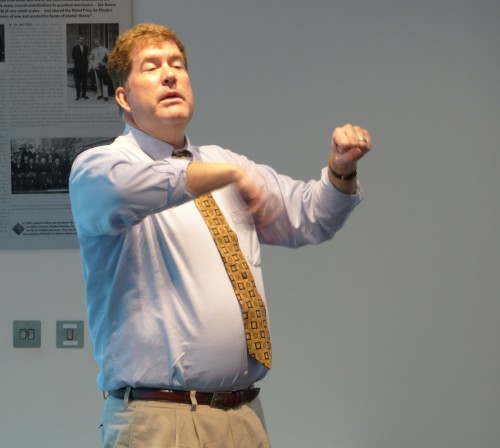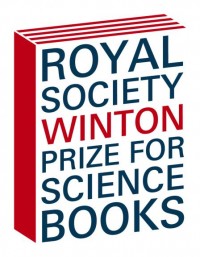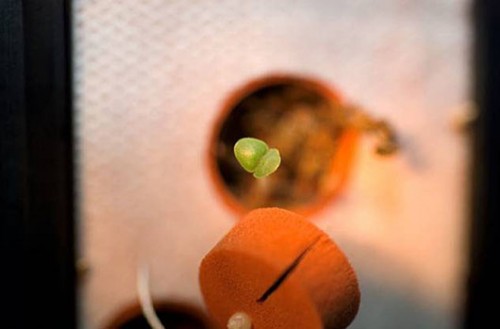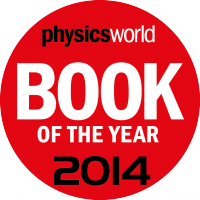Tag archives: books
Settling scientific disputes in public

By Margaret Harris
Here’s a Tuesday quiz for you. If you disagree with a colleague about something scientific, what should you do? Your choices are:
(a) Nothing. This is science, and the truth will win out no matter what I do;
(b) Take them aside and explain, privately, why you think they are wrong. Then, if they still disagree with you, get even by writing snarky anonymous reviews of their papers;
(c) Organize a panel “discussion” and tear them to shreds in front of all your colleagues;
(d) Take your case to the public by writing a popular-science book explaining the superiority of your own theory.
Okay, this is a trick question: I’m not sure any of those options is really a good idea (although I’m sure they’ve all been tried). I’d like to focus on the last one, though, because it was the subject of an interesting talk at the Science in Public conference, held last week in Physics World’s home city of Bristol.
View all posts by this author | View this author's profile
Top physics books for 2014
Is it time for end-of-the-year lists already? At Physics World HQ, the answer is a definite “yes”, and we’re kicking off the season with our annual list of the year’s best physics books.
As in previous years, the entries on our “Book of the Year” shortlist are all well written, novel and scientifically interesting for a physics audience. They represent the best of the 57 books that Physics World reviewed in 2014, being highly commended by external experts (the diverse group of professional physicists and freelance science writers who review books for the magazine) and by members of our own editorial staff, who helped winnow the field down to a shortlist of 10.
This is the sixth year we’ve picked a “Book of the Year”, and I don’t think I’ve ever seen a stronger shortlist. Frankly, 2014 has been a fantastic year for science books, and for physics books in particular. You’ll see that quality reflected in the list below, where first-person accounts of the latest discoveries rub shoulders with historical analyses of the foundations of the field. There’s room in our shortlist for books about acoustic physics, exoplanets, geophysics, materials science, radiation safety and scientific ethics – plus a whimsical tour of the physics of fantasy and science fiction.
View all posts by this author | View this author's profile
Prizewinning book gives materials science a chance to shine
By Margaret Harris

Mark Miodownik last night.
Materials scientist and first-time popular-science author Mark Miodownik was all smiles last night as his book Stuff Matters scooped one of the UK’s top non-fiction awards, the Royal Society Winton Prize for Science Books. The book, an engaging and often highly personal look at some of the everyday materials that make modern civilization possible, was the unanimous choice of the five-member judging panel, coming top in a strong shortlist that also included a history of general relativity, a memoir about cancer and an analysis of the role played by physicists in Nazi Germany.
Miodownik picked up his award – a rectangular prism that looked like glass but was, he informed us, actually made of acrylic – at the end of a ceremony in which he and four of the other shortlisted authors appeared on stage at the Royal Society’s London headquarters to read passages from their books. Earlier in the evening, there had been an audible buzz in the room as Miodownik read from the introduction of Stuff Matters, in which he describes how, as a teenager, he was slashed with a razor blade during an attempted mugging, and how he became obsessed with materials and their properties afterwards. (He is now a materials engineer at University College London.)
Discovering your inner scientist

Chad Orzel in action.
By Matin Durrani
Chad Orzel writes one of the most active and longest running science blogs on the net, having posted the first entry on his blog Uncertain Principles back in June 2002. A physicist at Union College in Schenectady, New York, he’s also written two popular-science books, based on the cute premise of trying to teaching first quantum physics and then relativity to his dog.
So, a couple of months back, when we noticed that Orzel was coming to the UK, we decided to invite him to give a talk as part of the Bristol Festival of Ideas. Orzel kindly accepted our offer and last night saw him speak here at the offices of IOP Publishing, which publishes Physics World. The talk was entitled Eureka! Discovering Your Inner Scientist, which just happens to be the title of Chad’s next book. (And what’s wrong with a spot of self-publicity?)
View all posts by this author | View this author's profile
A mixed bag of science books
By Margaret Harris
The longlist for the 2014 Royal Society Winton Prize for Science Books has been announced today, and, with a few exceptions, I’m not impressed.

I’ll begin with the exceptions. Of the six books on the 12-strong longlist that have come across my desk as Physics World’s reviews editor, two of them – Philip Ball’s Serving the Reich and Pedro Ferreira’s The Perfect Theory – fully deserve to be in contention for the £25,000 prize. I reviewed Ball’s book myself and found it fascinating, and although Physics World’s review of Ferreira’s book won’t be published until July, I can reveal that the reviewer found it “timely, expert and highly readable”. I also gave a pass mark to Brian Clegg’s Dice World, which is a good, serviceable treatment of a topic – quantum randomness – that deserves more love than it gets. Congratulations to all three authors.
View all posts by this author | View this author's profile
Cress on the Moon, more physics books, a radioactive ‘foot’ and more

A small green sprout of cinnamon basil, growing on board the International Space Station in 2007. (Courtesy: NASA)
By Tushna Commissariat
Early this week, a story in the Telegraph caught our eye – NASA is planning on sending turnip, cress and basil seeds to the Moon to germinate them! This is most definitely not the first time that plants have been grown beyond the realms of Earth. Indeed, potatoes were grown on board during a 1995 Space Shuttle mission and many experiments involving germinating seeds were done on the International Space Station. The goal of these studies was to understand the effects of microgravity on plant growth. But now, NASA plans to take this one step further in 2015 with their Moon Express mission, which will include the Lunar Plant Growth Chamber that will carry seeds and enough air and nutrients to allow the seeds to sprout and grow. Will fresh salad be on an astronaut’s menu soon?
